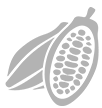 COCOBOD Child Education Support
COCOBOD Child Education Support
Ghana Cocoa Board has been able to relieve the burden on society regarding education. COCOBOD knows what education can lead to and the great benefit it will have in the country so it has been able to embark on these educational projects:
a) Construction of Schools
- COCOBOD helped in the building of the trust schools. In 1958, the Board granted the defunct Ghana Educational Trust an amount of 5 million Cedis for the building of Secondary Schools in various parts of the country. The Trust used the amount in financing the building of 26 Secondary Schools including Apam, Yaa Asantewaa, Ghana National, Labone, Kadjebi, Sunyani, Akim Oda, Konongo Odumase, Axim and Asankragwa among others. The objective of this scheme was to encourage the youth of the rural districts to continue their secondary school education in their own localities.
- In addition, nine (9) basic schools were built at the heart of cocoa-growing communities in an effort to reduce child labour conditions. The schools are situated in Appaihkrom, Akutreso, Sienchem, Nsonnan, Twifo Heman, Attakrom, Bomposo, Obosomase, and Sefwi Kaase, in the Western, Eastern, Central, Ashanti and Brong Ahafo Regions.
- The Board also assisted in the building of Akuafo Hall at the University of Ghana. Akuafo Hall now accommodates thousands of Graduate and undergraduate students.
- Some selected schools in the country have benefited from COCOBOD's free computers and this has spared such schools the burden of borrowing computers and also enhanced their Information Communication Technology (ICT) skills.
- The Board supports agriculture clubs in tertiary institutions. An example is the University of Professional Studies, formerly Institute of Professional Studies (IPS) where there is an established club called the Cocoa Advocates Movement. This club helps students of the school to appreciate the cocoa industry and develop interest in it.
b) The Cocoa Farmers Scholarship Scheme
COCOBOD has instituted a Cocoa Scholarship Award Scheme as part of its welfare services to cocoa farmers for the education of their wards in second cycle schools. Averagely, COCOBOD sponsors about 7,500 students per year for the 3-year stream or 10,000 students for the 4-year stream.


 COCOBOD Child Education Support
COCOBOD Child Education Support